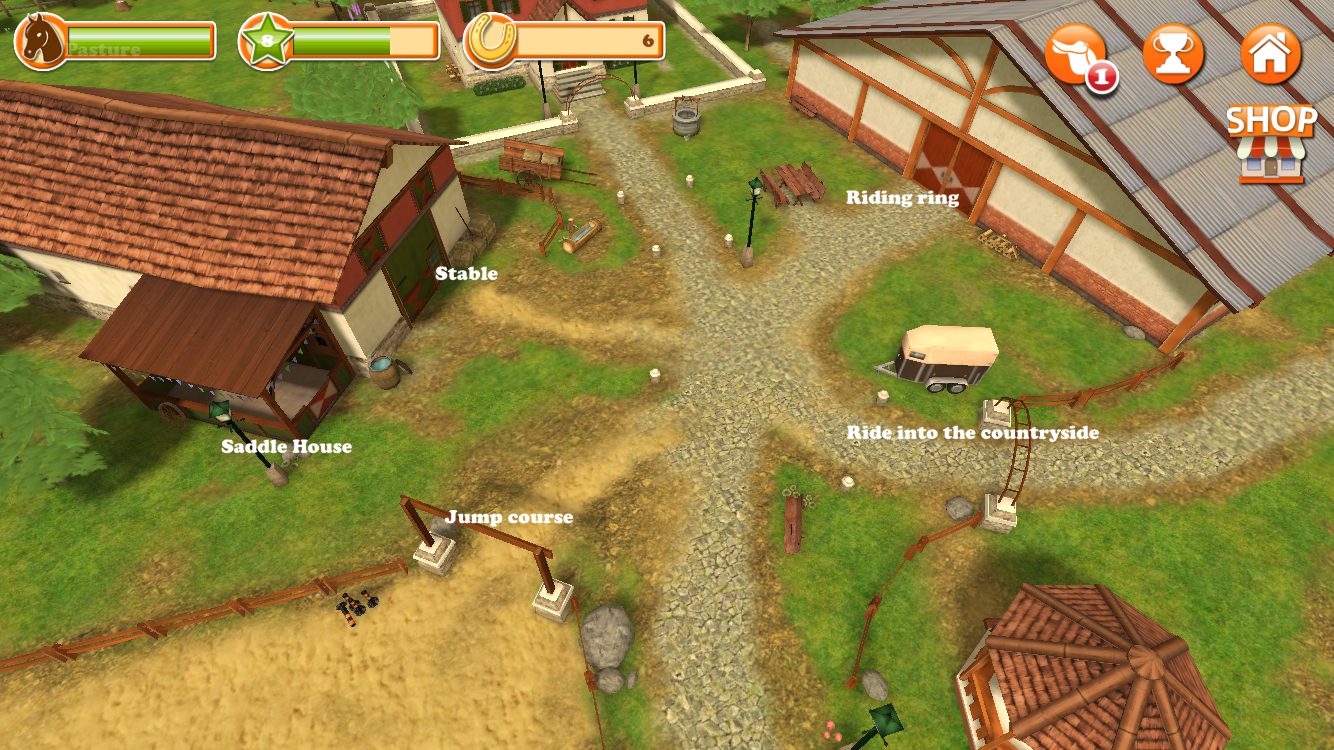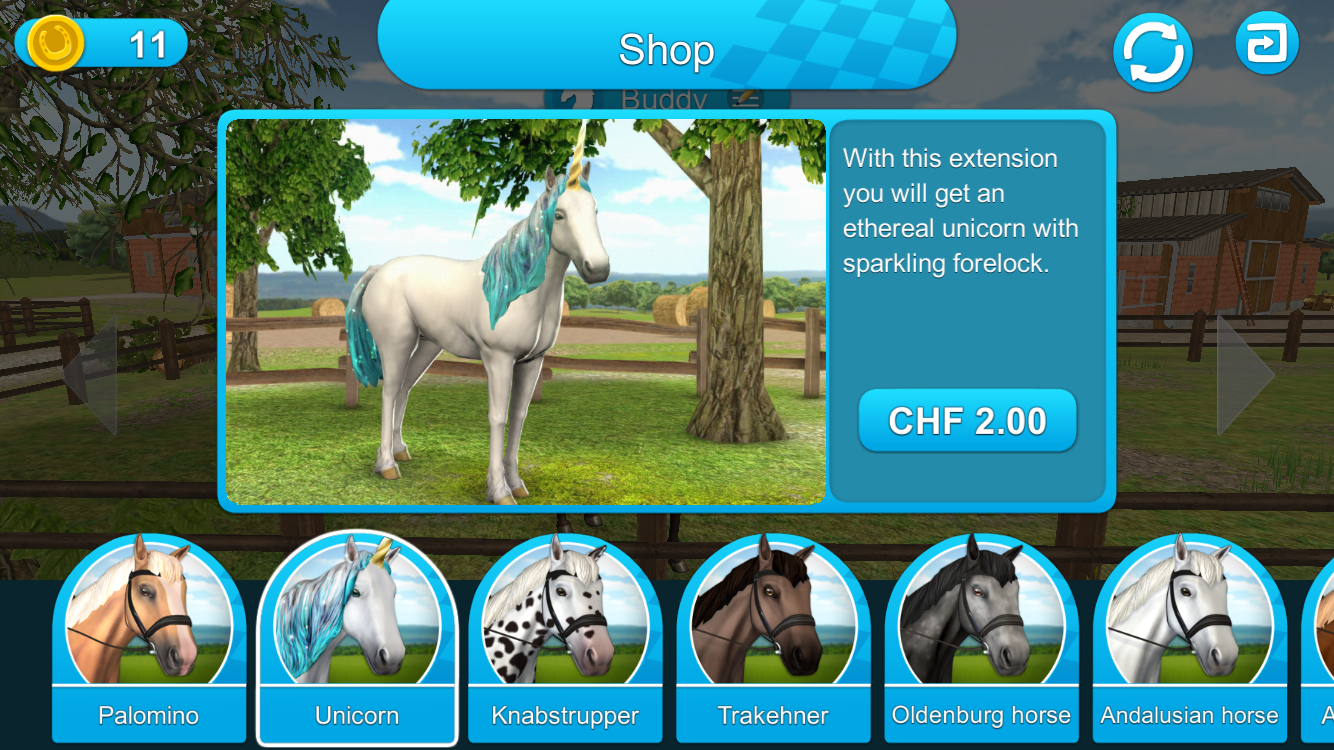“I joined Tivola because I wanted to make horse games” — Studio Visit and Interview with Inga Panten
Tivola Publishing GmbH has been known to me from childhood, as the creators of TKKG games, a series of detective point and click adventures on PC, featuring the teenage protagonists I was familiar with from audio drama tapes. The German company has been making and publishing games since 1995. While their portfolio has always been family-friendly, they have recently put more focus on horse-themed games in particular.
I was introduced to Product Manager Inga Panten by a friend who met her at Gamescom last Summer, just as I was beginning to be more vocal in my comments about game horses on Twitter, but still months before The Mane Quest was launched. Inga and I exchanged a few emails commiserating on the lack of really good horse games and getting excited about the idea for my own WIP horse game before she eventually invited me to visit Tivola’s offices in Hamburg for a day to get a look behind the scenes.
The Tivola Family
Inga Panten, Product Manager at Tivola Publishing GmbH
February 26th 2019
Inga shows me around the studio, spread over two floors of an older building in the Altona district of Hamburg. In every corner, one finds signs of the company’s long experience in child-friendly and animal themed games: a large, colorful artwork of Tivola characters greets visitors, and plushies and figurines decorate shelves and desks. In one of the offices, I notice a calendar of topless stable “boys” that Inga laughingly calls a gift when I point it out.
Over a bottle of cucumber lemonade from the break room fridge, Inga tells me of her previous jobs in the game industry. She used to be a Community Manager at dtp Young, the publisher behind many of the most well known horse games in the German-speaking DACH region before its eventual bankruptcy.
The Tivola team
After that, she worked at InnoGames and Goodgame Studios, both of which are big Hamburg-based developers of free-to-play mobile and browser games. Both have seen rapid hiring and massive layoffs in her time there. She herself was not let go during the biggest waves of layoffs at Goodgame Studios, but did no longer felt like she belonged there regardless.
“Tivola feels a lot more like a family”, she says. On the wall next to us, there are pictures of the employees with their names and job titles. Of the nineteen people on it — though only about fifteen are considered full-time team members — nine are women. A remarkable gender ratio considering the global industry average of around 20-25%.
“I knew Tivola was making horse games,” Inga tells me, “and I always wanted to work on a horse game, so I applied here.”
Promotional image from Red Panda
Games and Audience
Despite their past success with PC games, Tivola has shifted almost entirely to the mobile market in recent years. The themes of their games have remained family friendly, many of them prominently featuring animals in their gameplay and setting. Some of their games are developed by external partners following Tivola’s outlines, other projects are created from start to finish by the core team.
One of the studio’s bigger projects and one of the few developed entirely in-house is a mobile game called Red Panda.
“We’re very happy with how that turned out,” Inga explains, “but it’s not quite as successful as our horse games. A lot more people search for ‘horse’ than for ‘red panda’ in the app stores.”
Horse games is where the company invests much of its time at the moment. Their main projects are called Horse World, Horse World: Show Jumping and Horse Hotel. The games are all available for free and monetized with in-app purchases and rewarded videos, though separate premium versions with all the content unlocked exist. New mechanics and features are conceived and defined by Tivola, then passed to their external developers for asset creation and implementation.
The stable overview screen in Horse World
The unicorn is a profitable addition to Horse World: Showjumping
While I try out the game’s premium version on a company tablet, Inga explains to me that although they had originally intended the game to remain realistic in setting, adding a purchasable unicorn turned out to be unavoidable from a business perspective: The sparkling fantasy steed generates over ten times as much income than any other unlockable horse breed.
Inga tells me about some of the planned updates to Show Jumping and invites me to join her and fellow Product Manager Doris Kleine in brainstorming the best structure for their latest feature.
The pasture in Horse World was added once Inga joined the team
In a coming update, players should be able to customize their tack. For a while, we discuss how to best structure the UI for editing, previewing, unlocking and confirming the cosmetic options in order to achieve high conversion and no frustration.
The primary target audience for Tivola’s horse games are adult women, Inga says. Although the studio doesn’t explicitly conduct playtestings with that target audience, they take user reviews in the app stores into account for feedback and feature requests.
When Inga joined the team a few months ago, she quickly started advocating for the sorts of changes that she herself most wanted to see in a horse game.
Thanks to her efforts, the horses in Horse World did not only receive a complete model rework, but they can now be put out into pasture, where they can be fed and roll in the dirt on the player’s command.
Old and new horse models in Horse World
“I would have liked the rolling to happen on its own,” Inga admits, “but that brought too many complications, like how a player might never even see it if they don’t wait a long time, or how you would not be able to interact with the horse while it was lying down.”
I myself remember being positively surprised that the horse lying down and rolling was part of the game at all when I first tried Horse World. It’s a detail of equine life often neglected in digital representations.
Inga is happy with the changes she was already able to make, but has no intention of stopping there.
She believes Tivola’s horse games are good at giving the player a toy to play with, but don’t provide enough direction. In the future, she would like some of the games to have more meaningful progress. The studio is also looking into expanding onto other platforms. Inga sees potential for horse games not only in the mobile market, but also as premium console titles — especially on Nintendo Switch, where the offering is currently limited to sub-par entries like My Riding Stables: Life With Horses.
The Grand Scheme of Things
Inga documents her new horse’s training on Instagram
Over the few hours that remain before my plane heads back to Zurich, our conversation becomes less of a studio tour or interview and more casual. Inga shows me pictures of the Quarter Horse she just bought, a young dunalino mare that she intends to train for Reining shows. She sold her previous horse, his training complete, in order to look for a new challenge.
We both vent our frustration about the state of horse games in general. Inga firmly agrees with my belief that the audience of adult equestrian gamers is critically underserved. I tell her about some of the bad horse games I’ve seen and played and we wonder at some of the odd choices together, both of us well aware how easy some of the mistakes might have been to rectify if only one had asked an equestrian for feedback.
We look back at horse games we’ve played in the past and at the holy trinity of horse games that kickstarted the genre in the German-speaking market: the horse-themed adventure game with a story (Abenteuer auf dem Reiterhof/The Legacy of Rosemond Hill), the pseudo-realistic sports simulation (Riding Star/Mary King’s Riding Star) and the farm build-up tycoon game (Mein Pferdehof/My Horse Farm).
These three were among the earliest entries in the genre and surely in great part responsible for the boom that followed by selling better than anyone had anticipated. They were far from perfect, but even so they had a certain bit of depth that subsequent releases did not usually reach anymore.
In the later 00s, the German horse game market was flooded with low quality knock offs and sequels until finally “horse girls” were not seen as an easily profitable audience anymore and almost a decade would pass until new horse games received funding.
Inga and I both firmly believe that each of these subgenres — riding sports simulation, horse adventure and farm management tycoon — are more than ripe to be explored once more. Perhaps this time by someone with more of an interest in the subject matter.
Inga and myself at the Tivola offices
A Fond Farewell
From an environmental perspective, I feel guilty about taking a flight to another city for the sole purpose of spending a day talking about horse games with someone who shares that passion. But I absolutely cannot bring myself to regret the trip.
It is too early to speak of a trend, but between Inga’s efforts within Tivola, the development of Equestrian The Game and my own dabbling, it feels like there is finally a chance for horse games made by people who actually know and love horses.
I will definitely be watching Tivola’s projects closely now that I know they’re in Inga’s enthusiastic equestrian hands.
UPDATE: More than two years later, Inga and her team are working on a promising new horse game – and I’m helping them! Find all information on Tivola’s new game Wildshade right here.










